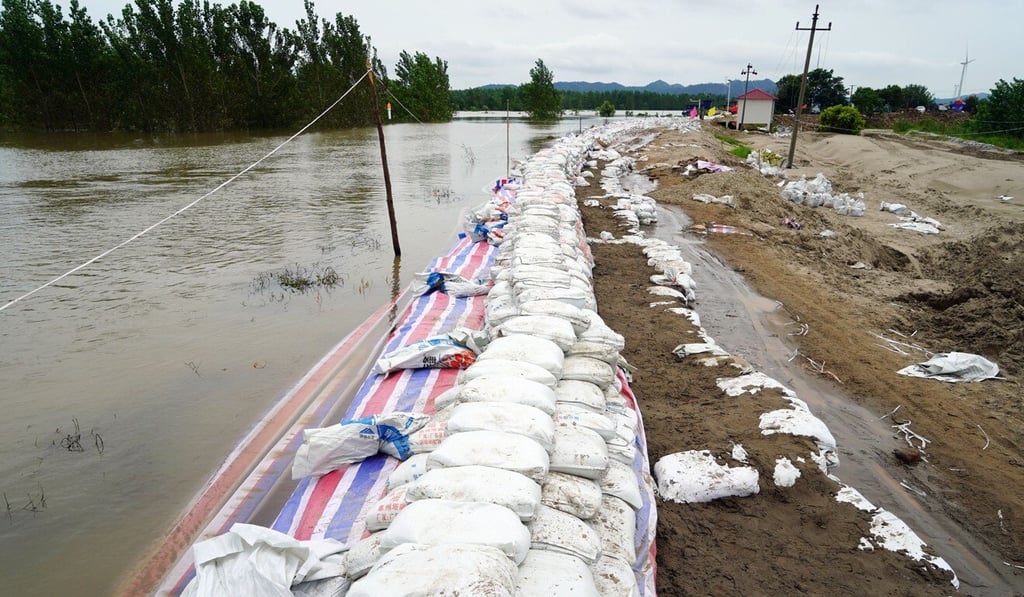Yangtze flood passes peak in eastern China but no time to relax
- Communities on the river delta in Jiangxi province continue to sandbag against further flooding
- Numerous waterways continue to rise at levels not seen since the great deluge of 1998

Liu is stationed at Jiangzhou, a town surrounded by water on the river delta in Jiujiang. It is protected by a 10km (6.2 miles) dyke which, this year, has not been enough it keep it safe. Water levels have risen slightly higher than the island and have been kept at bay by layers of plastic and sandbags built by the villagers and soldiers stationed there.

On Monday, the Changjiang Water Resources Commission’s hydrology bureau said the flood peak had passed through the Jiujiang region, leaving it with a water level of 22.81 metres, the highest since 1998.
While live monitoring has shown the Yangtze has stabilised, other water bodies in the area – including China’s largest freshwater lake, Poyang – continue to pose a threat, according to Liu.
Poyang Lake, about 100km from Jiangzhou, reached a historic high of 22.6 metres on Monday – 3.6 metres past its most extreme alert level. Its waters were expected to continue rising on Tuesday before finally beginning to slowly recede over the next three days, according to the Jiangxi authorities.